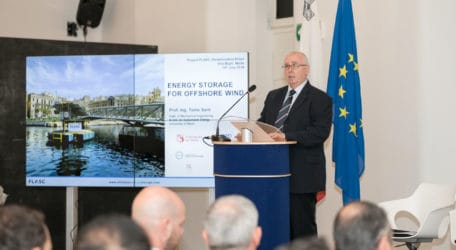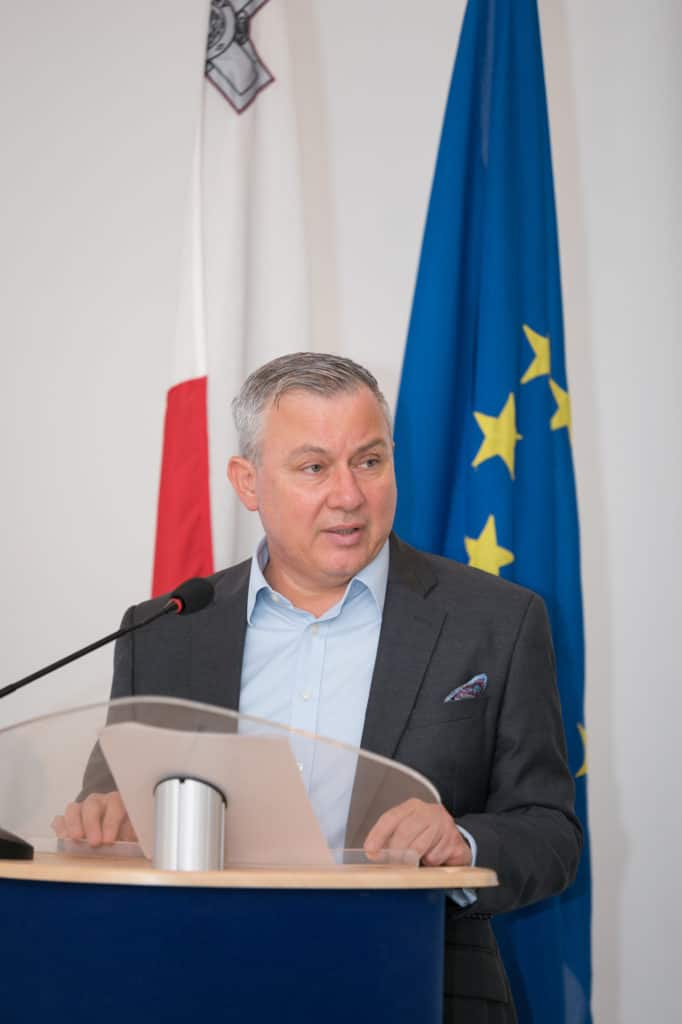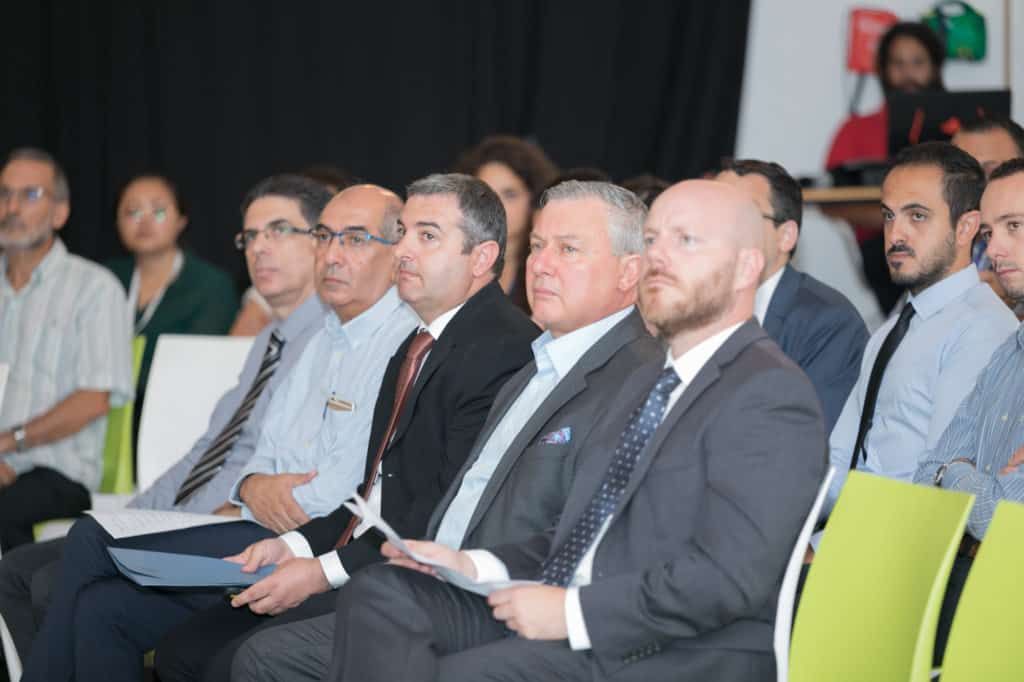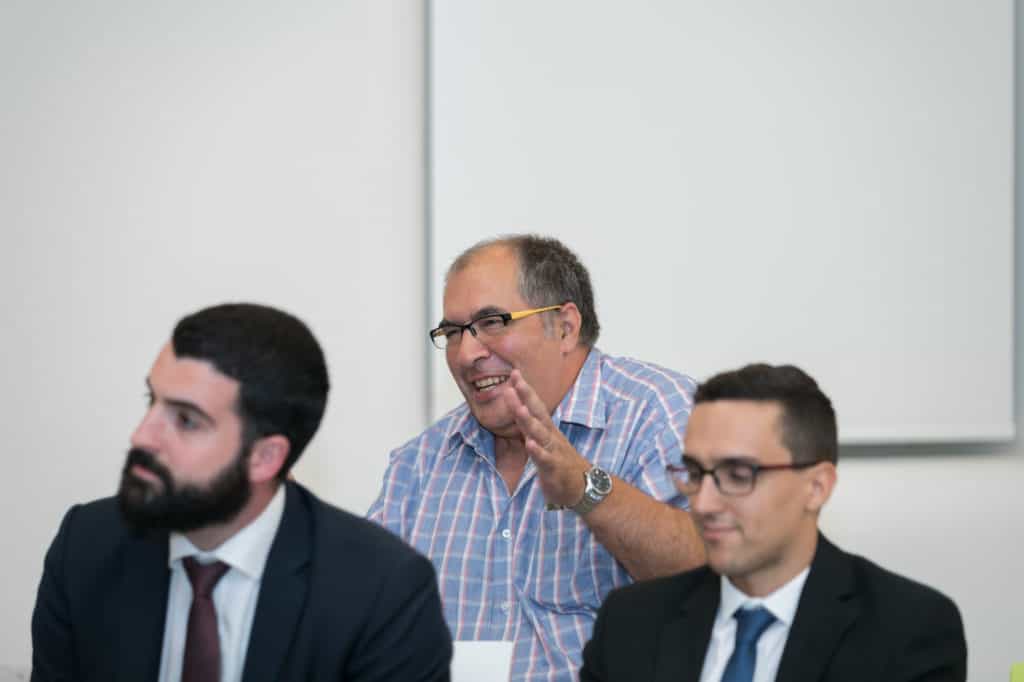
FLASC: A Renewable Energy Storage System breaks existing market barriers in off-shore
Photos by Darren Agius
The Malta Council for Science and Technology (MCST) which falls under the Hon. Silvio Schembri, Parliamentary Secretary for Financial Services, Digital Economy and Innovation has this morning organised the FLASC dissemination event which took place at Esplora Interactive Science Centre, Kalkara.
Presently, renewable sources have to immediately sell all the energy they produce. If there is no immediate demand it is wasted. The Floating Liquid-piston Accumulator using Seawater under Compression (FLASC) project which is an energy storage technology tailored for the offshore environment is a solution to this problem. Developed by the University of Malta and Medserv plc, a local oil & gas logistics company, the system uses pressurised seawater and compressed air to store energy from intermittent offshore renewable resources such as wind, wave, tidal and floating PV, along with liquefaction of natural gas, water injection in oil wells and water desalination. It is designed for use in the tough offshore environment, to match the lifetime of contemporary wind turbines and is cost-competitive with li-ion batteries, with the added advantage of not relying on hazardous chemicals. It is best suited for floating systems since it integrates directly into the platform itself. This is a key advantage, since storage is located at the point of generation while also remaining within the footprint of the floating renewable energy device. The investment in this technology enables our country to rely less on importing fossil fuels, plus improving the air quality and the environment around us.
The FLASC project has been made possible through the FUSION R & I Technology Development Programme (TDP) of MCST. Almost 16 million Euro has been awarded to local researchers, public and private entities between 2004 and 2018 through the TDP programme. The R & I Unit at MCST is currently working on developing the FUSION programme further to be able to help the local research community.
The Executive Chairman of the Malta Council for Science and Technology, Dr. Jeffrey Pullicino Orlando said that “the role of the FUSION programme is to support researchers from public and private entities as well as to ingrain research in the heart of the Maltese economy. These funds create new jobs for academics and for Maltese industry, spur sustainable technology ahead and improve our quality of life.”
He added that “the FUSION program focuses on supporting entrepreneurs and small businesses, who have become the backbone of the Maltese economy, in their efforts to see their innovative ideas materialise.”
The Pro-Rector for Research & Knowledge Transfer at the University of Malta Prof. Ing. Saviour Zammit, said “it is with great satisfaction that the University of Malta has been granted the patent on the FLASC project from Europe, China, Japan and the United States where the sustainable energy offshore industry is expected to grow.
Such projects are proof of the potential and skills that our country has to become a hub of excellency in the Mediterranean region for innovation and development of new technologies, in particular, those related to the maritime sector.”
The pro-rector also commended MCST, the project team, researchers, students as well as all the technical people involved for their dedication. He had particular words of praise for Medserv plc. who were crucial in the development, testing and prototyping of a certain scale.
This prototype was deployed in the Maltese Grand Harbour, and operated over one year, undergoing hundreds of charging-discharging cycles. Financial support was also provided by Malta Maritimma and the Research, Innovation and Development Trust of the University of Malta.
The data obtained from the prototype was used to validate engineering software developed by the University to simulate the performance of the FLASC system. It also served as a proof-of-concept for this innovative energy storage technology. The FLASC project came to a close after three years of work, and will now be looking for investors to put the product on the market. Over all the project allowed for completing crucial technical developments, towards a commercially viable solution.
For further info on the project visit: www.offshoreenergystorage.com
- July 18, 2019 No comments Posted in: Events Tags: FLASC









